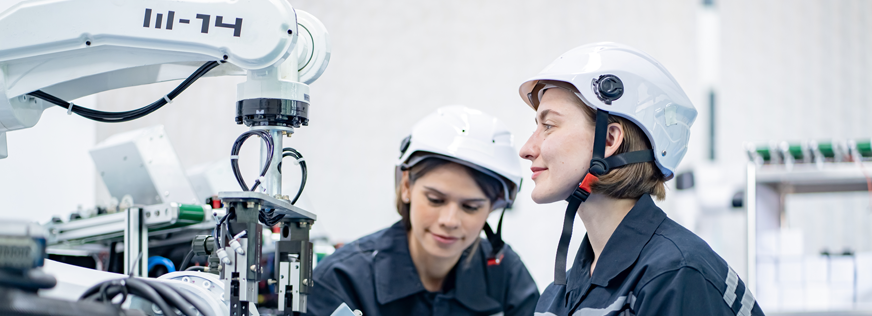10 Incredible Ways Technology is Revolutionizing Engineering
- Home
- 10 Incredible Ways Technology is Revolutionizing Engineering

- July 6, 2023
- by Kristine T.
- Technology in Engineering
In the ever-evolving world of engineering, technology is the driving force behind unprecedented advancements and breakthroughs. From the simplest construction projects to cutting-edge innovations, technology plays a vital role in reshaping the landscape of engineering disciplines. In this article, we will explore ten incredible ways in which technology is transforming the field of engineering, making it more efficient, sustainable, and dynamic than ever before.
1. BIM: Building Information Modeling
Building Information Modeling (BIM) is revolutionizing the way engineers plan, design, and construct buildings and infrastructure. BIM integrates 3D modeling, data management, and collaboration tools to create a comprehensive digital representation of a project. This technology enhances collaboration between architects, engineers, and contractors, resulting in streamlined workflows, cost savings, and improved project outcomes.
2. AI-driven Design Optimization
Artificial Intelligence (AI) algorithms are now being employed to optimize engineering designs in ways that were previously unimaginable. These algorithms can explore vast design spaces, refining parameters to achieve optimal solutions for specific criteria. This allows engineers to create more efficient and innovative structures, products, and systems, ultimately leading to better performance and resource utilization.
3. IoT and Smart Infrastructure
The Internet of Things (IoT) is bringing a new level of intelligence to infrastructure. Engineers are embedding sensors and communication devices into buildings, bridges, and transportation networks, enabling real-time data collection and analysis. Smart infrastructure can monitor its own health, detect potential issues, and even make real-time adjustments to improve efficiency and safety
4. Advanced Materials and Nanotechnology
The development of advanced materials and nanotechnology is opening up new possibilities in engineering applications. These materials possess unique properties, such as extreme strength, enhanced conductivity, and self-healing capabilities. Engineers can now create more durable and lightweight structures, contributing to energy conservation and sustainable development.
5. Robotics and Automation
Automation and robotics are transforming various engineering sectors, such as manufacturing, construction, and maintenance. Robots can carry out repetitive tasks with precision and speed, reducing the need for manual labor and increasing overall productivity. Additionally, these technologies enable engineers to access hazardous or hard-to-reach locations safely.
6. Renewable Energy Solutions
Technology has been instrumental in driving the adoption of renewable energy sources, such as solar, wind, and hydropower. Advanced engineering techniques have made these energy solutions more efficient, cost-effective, and scalable. As a result, we are witnessing a global shift toward cleaner and sustainable energy systems.
7. Virtual Reality (VR) and Augmented Reality (AR) in Engineering
VR and AR technologies are revolutionizing engineering design, simulation, and training processes. Engineers can now immerse themselves in virtual environments to visualize projects, identify potential issues, and test solutions before implementation. This not only saves time and resources but also enhances safety and accuracy.


8. Data Analytics and Predictive Modeling
The abundance of data in engineering projects can be harnessed through data analytics and predictive modeling. Engineers can extract valuable insights from data collected during construction, operation, and maintenance phases. Predictive modeling enables proactive maintenance, minimizing downtime and maximizing the lifespan of infrastructure and equipment.
9. 5G Connectivity and Communication
The rollout of 5G technology is empowering engineers with faster and more reliable communication capabilities. This high-speed connectivity enhances remote collaboration, enables real-time monitoring of projects, and supports the proliferation of IoT devices in engineering applications.
10. Cloud Computing for Collaborative Engineering
Cloud computing is revolutionizing the way engineers work together on complex projects. It allows real-time collaboration and data sharing, regardless of geographical locations. Engineers can access project data, software tools, and simulations from any device with an internet connection, promoting efficiency and productivity. With cloud-based collaborative engineering platforms, teams can seamlessly work together on intricate projects without being constrained by physical boundaries.
Conclusion
Technology's transformative influence on engineering is undeniable, revolutionizing traditional practices and opening endless possibilities. From AI-driven design optimization to smart infrastructure, engineers are embracing these innovations to create more efficient, sustainable, and intelligent solutions. With advanced materials, robotics, and data analytics, the engineering landscape has evolved significantly, making the world a better place through enhanced infrastructure and renewable energy solutions. Embracing cutting-edge technologies, engineers are driving progress and shaping a brighter future for generations to come.
Are you looking to harness the power of technology to take your engineering projects to new heights? Contact us today to explore how our expertise in cutting-edge technologies can optimize your designs, streamline your processes, and lead to exceptional project outcomes. Here at Design to Product Ltd., our team of skilled engineers and innovators are dedicated to embracing technology and staying at the forefront of the latest advancements in the field. Let us collaborate to bring your engineering visions to life efficiently and sustainably!
Remember, the future is built on technology, and we are here to help you shape it.



